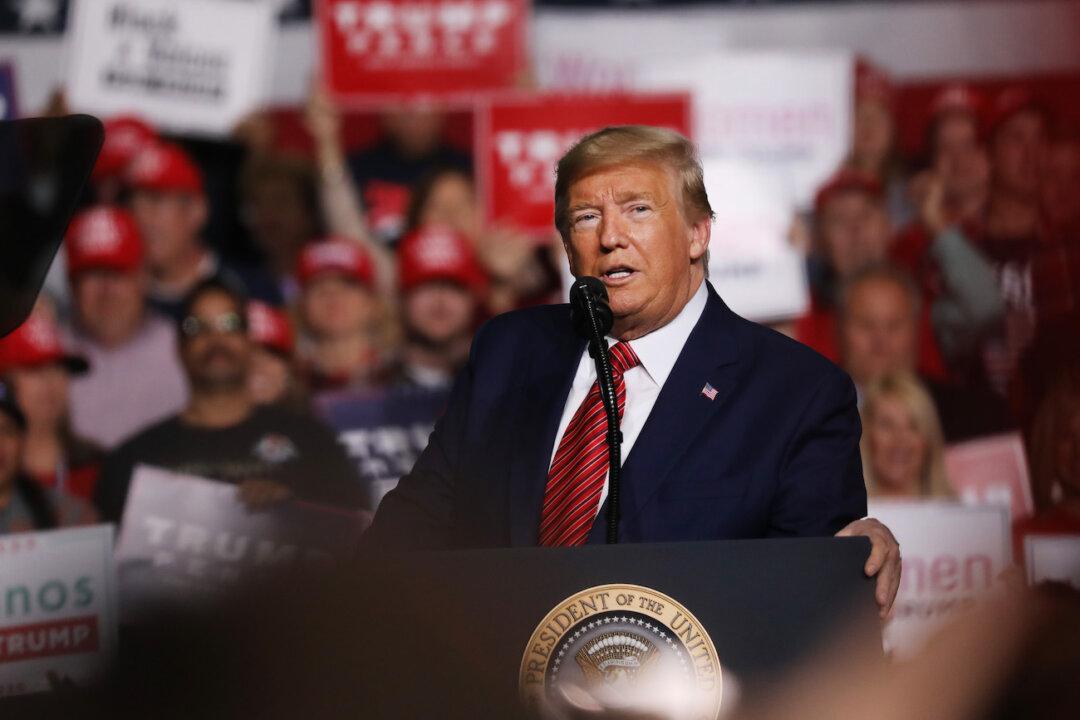The Trump campaign filed a defamation lawsuit against a pro-Democrat super PAC over an advert that featured a “manufactured statement” that claimed President Donald Trump called the CCP (Chinese Communist Party) virus a “hoax.”
The lawsuit, filed June 18 in the U.S. District Court for the Western District of Wisconsin (pdf), says that Priorities USA Action (PUSA) produced an advert featuring a “false and defamatory statement” that harmed the reputation of the Trump campaign.




